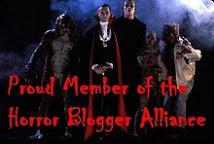(1975, Dir. by Jerry Jameson.)
It's 1966, and there's a sniper atop the university tower in Austin, Texas. It sounds like a pitch for a high-concept thriller - and, since 1966, it has been a few times - but it's actually the true story of Charles Whitman, a former Marine turned sniper who killed thirteen people on August 1st that year. His tale would be the partial inspiration for one of my favorite movies - Targets - in 1968, but it's tackled headfirst in the 1975 TV movie The Deadly Tower.
I've had a passing interest in the Whitman case since I first saw Targets, and when I saw that this "true crime" adaptation of the massacre and its bloody end starred the coolest actor to ever live (aka, Kurt Russell), I pretty much had to become good friends with The Deadly Tower. And now I have, and now you're gonna read about it.
There isn't a lot known about Whitman prior to his actions - which became violent and criminal when he murdered his mother and wife in the early hours of the day of the shooting - so The Deadly Tower takes a rather simple approach to the character. Russell makes Whitman an intense character who speaks very rarely...in fact, he pretty much spends the last hour of the movie squinting, pulling a trigger, ducking, and repeating. He gets in a good primal scream at one point, too. Presence is what the movie needs from Russell, and he delivers that. The end result is a performance that isn't as jaw-dropping as I hoped it would be, but is memorable and efficient within the film.
Since a mostly-silent sniper isn't much of a story, The Deadly Tower also focuses on one of the police officers that would play a major role in the story, Ramon Martinez (played by Richard Yniguez). The first half of the film attempts to create a parallel between the cop and the killer, both who have frustrations with their lives, but the film loses steam when it tries to play Martinez's issues against Whitman's. Part of this might be due to some falsities in the film's production, as the real life Martinez sued the producers for misrepresenting his wife in the film (and won a settlement out of court).
Though the police investigation - primarily a couple of scenes with a Lieutenant and a Priest - does provide some background into the Whitman character, the police side of the story left me cold. The Deadly Tower is most interesting when it merely lets us experience the gunner's horrific actions, which are handled well by director Jerry Jameson at most times. The moment when Whitman takes his first shot at a random gentleman in a grassy courtyard is handled perfectly, and the film really seems to nail that "WHAT THE HECK DID THAT REALLY JUST HAPPEN" style of shock that you'd expect to come over you if you were trapped in the same situation. (Or at least the style of shock you'd expect if you expected to see the same situation in a movie.) But then the film just kind of stays at that point of "Yep, he's shooting peeps and stuff" for a while, and the shock turns into boredom at times.
I am really glad I finally saw The Deadly Tower, because it has that raw TV movie of the '70s vibe that we seem to have lost as time moved past, and because I got to see Russell be an emotionless sniper in a clocktower for 90 minutes. But I don't know if The Deadly Tower really did as much for me as I wanted it too, primarily because I wasn't interested in the cop side of the story and because the film grew repetitive with time. I'm sure The Deadly Tower shocked audiences in 1975 - especially when you consider Russell's earlier fame via Disney - but it's pretty ho-hum by today's standards thanks to these problems. I could see a Tarantino-esque non-linear version of the story working for today's audiences, but for now I'll probably just watch Targets again the next time I start thinking about the Charles Whitman case.
Or, I'll just watch news coverage from '66 on YouTube.
Dirty Pillows For All
1 day ago










No comments:
Post a Comment